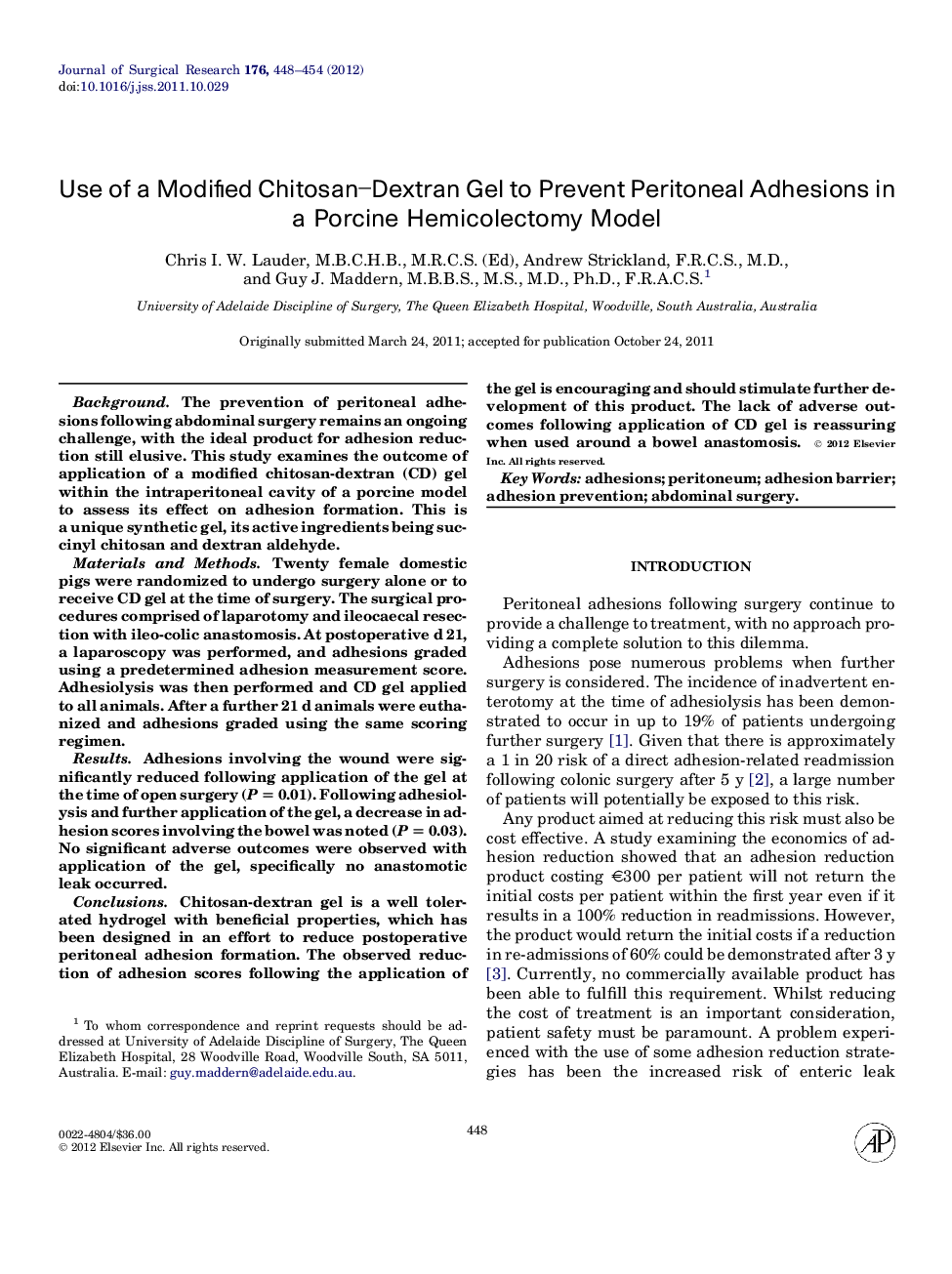| Article ID | Journal | Published Year | Pages | File Type |
|---|---|---|---|---|
| 4301924 | Journal of Surgical Research | 2012 | 7 Pages |
BackgroundThe prevention of peritoneal adhesions following abdominal surgery remains an ongoing challenge, with the ideal product for adhesion reduction still elusive. This study examines the outcome of application of a modified chitosan-dextran (CD) gel within the intraperitoneal cavity of a porcine model to assess its effect on adhesion formation. This is a unique synthetic gel, its active ingredients being succinyl chitosan and dextran aldehyde.Materials and MethodsTwenty female domestic pigs were randomized to undergo surgery alone or to receive CD gel at the time of surgery. The surgical procedures comprised of laparotomy and ileocaecal resection with ileo-colic anastomosis. At postoperative d 21, a laparoscopy was performed, and adhesions graded using a predetermined adhesion measurement score. Adhesiolysis was then performed and CD gel applied to all animals. After a further 21 d animals were euthanized and adhesions graded using the same scoring regimen.ResultsAdhesions involving the wound were significantly reduced following application of the gel at the time of open surgery (P = 0.01). Following adhesiolysis and further application of the gel, a decrease in adhesion scores involving the bowel was noted (P = 0.03). No significant adverse outcomes were observed with application of the gel, specifically no anastomotic leak occurred.ConclusionsChitosan-dextran gel is a well tolerated hydrogel with beneficial properties, which has been designed in an effort to reduce postoperative peritoneal adhesion formation. The observed reduction of adhesion scores following the application of the gel is encouraging and should stimulate further development of this product. The lack of adverse outcomes following application of CD gel is reassuring when used around a bowel anastomosis.
